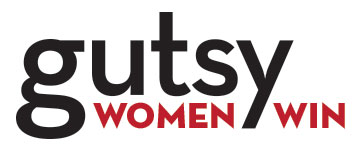How to Know You Are Accountable

“It is not only what we do, but also what we do not do, for which we are accountable." - Moliere
“Accountability” seems to be the buzzword lately. This has been coming up a quite bit over the past year, but it seems to be more predominant now than ever before.
I remember working in companies when the question, “Who is accountable for this work?” would bring up fear when the boss asked it. We knew that he was looking for one individual to blame. It was viewed as negative and we were always looking for someone else to be accountable so we didn’t get blamed
There were also situations when we would wait and hope that someone else would take the accountability baton because we didn’t want to be accountable in that specific situation. This is the space of excuses and “I can’t” and “I don’t have the time, resources, right people…” (fill in the blank) behavior. It’s where we believe we are controlled by our circumstances.
And there is always claiming the glory for a great solution because we were accountable for the task when in fact, the glory was due to someone else on the team not directly accountable for that specific task.
Accountability has many definitions, but the one that is primarily used in the work environment is the one at dictionary.com “the state of being accountable, liable, or answerable.”
You know you are accountable when:
- You have a mind-set to care about the results.
- You can sort the facts from the fiction and know that something needs to be changed.
- You care about the method of achieving those results in addition to the results.
- You have a sense of ownership to get great results for your customer, your team, and yourself.
- You take responsibility for your actions and their impact, your decisions and their results.
- You create an environment of respect and trust.
- You take ownership of the team goals in addition to your personal goals.
- There is a commitment to achieving goals and objectives that drives your behavior and the choices you make.
- An environment is built where people can safely learn from mistakes.
- You just don’t talk about results you get results. You solve problems that others just don’t want to tackle. You not only “Can Do”, you consistently “Do”. No excuses.
A teacher of mine, Dr. Rodger Dean Duncan, said, “People who psychologically own a problem are much more likely to solve it than people who merely acknowledge that a problem exists. The symptoms of psychological ownership are intense interest, passion, determination, and the persistent investment of energy. Psychological ownership reminds me of the old joke about ham and eggs. The chicken is merely involved, the pig is truly committed."
When faced with the “Who’s accountable” question ask yourself the following questions:
- What does accountability look like to you? What does it look like to the person to whom you’re delegating?
- How will you be absolutely sure that someone is accountable?
- What are the agreed expectations on the deliverables and all other aspects of the task?
- Who will be involved and where, when and how will accountability meetings occur?
Effective leaders are accountable for holding themselves and others accountable…consistently.

0 comments
Leave a comment
Please log in or register to post a comment